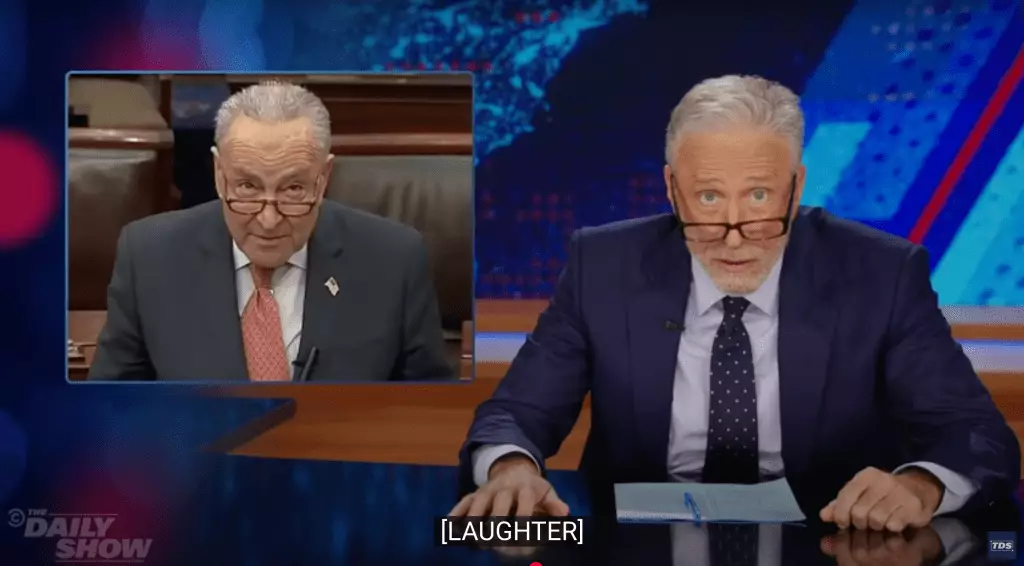In the world of American politics, the alignment and strength of opposition parties can significantly alter the landscape of governance. The recent commentary by Jon Stewart sheds light on a critical issue regarding the Democratic Party’s leadership, particularly pointing fingers at Senator Chuck Schumer. Stewart’s observations serve as a wake-up call, demanding accountability from Democratic leaders who seem to lack the vigor needed to stand firm against adverse legislation proposed by the GOP. When the stakes are high, especially with significant funding bills on the table, an absence of negotiation resilience within the opposition spells disaster for progressive ideals.
Edging Towards Compromise: A Double-Edged Sword
The tragic irony lies in Schumer’s recent compromises aimed at avoiding a government shutdown. Such decisions, while often rooted in the desire to maintain functionality within the government, can erode the minority party’s bargaining power. Stewart’s observations mockingly highlight a vital point: the Democrats, in ceding their leverage, risk rendering themselves impotent in future negotiations. Compromise is not inherently flawed; rather, it’s the delicate balance between cooperation and backbone that defines true negotiating strength. When deals are made without pushing back against the majority’s demands, the potential to inject progressive changes into legislation vanishes.
For the People: Misjudging Public Sentiment
Stewart’s witty, yet biting critique of Schumer offers a closer look at the disconnect between elected officials and the constituents they represent. The staggering 27% approval rating for Democrats underscores a failure to resonate with voters who crave action rather than passivity. In an era where political engagement is paramount, failing to read the public sentiment can represent a missed opportunity to unite voters behind a cause. Schumer’s decision-making reflects not only an underestimation of the opposition party’s role but also a potential disconnection from the very individuals who placed them in office.
The Art of Political Theatre: How Humor Strikes a Chord
Jon Stewart’s comedic approach transforms complex political critiques into relatable commentary, enabling the general populace to engage with serious issues through humor. His observations serve as a mechanism for highlighting systemic failures in the Democratic Party, allowing everyday citizens to grasp the internal challenges faced by their leaders. By using levity to underscore serious missteps, Stewart provides an approachable platform through which accountability can be demanded and political engagement can be ignited. Political theater, when executed effectively, can spur necessary conversations and inspire grassroots movements for change.
The Imperative for Strategic Vision
It is crucial for Democratic leaders like Schumer to recognize the power dynamics at play and to develop a cohesive strategy that not only pushes back against GOP legislation but also carefully lays the groundwork for future victories. A lack of clear direction risks alienating motivated voters who are seeking bold leadership. In this transformative era of politics, the Democratic Party must channel its energy into fostering unity, resilience, and a commitment to progressive values that can counterbalance the prevailing conservatism. Without a revived spirit of collaboration and assertiveness, the party risks perpetual marginalization, undermining the very tenets of democracy it seeks to uphold.

